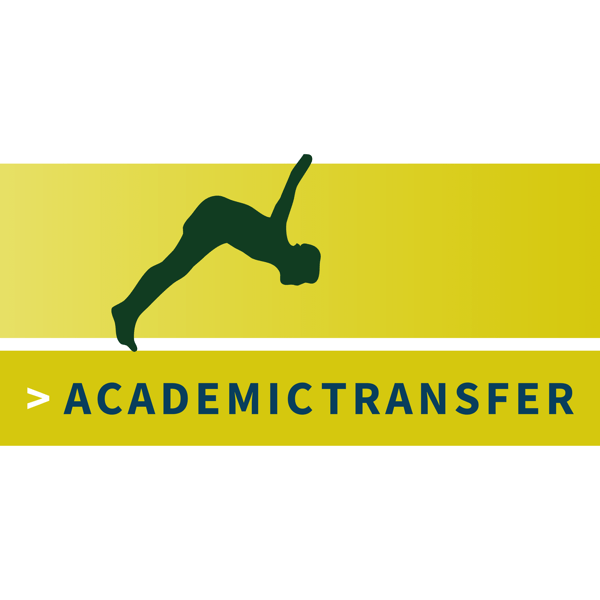
PhD Talk for AcademicTransfer: Opportunities and challenges with ChatGPT in education
This post is part of the series PhD Talk for AcademicTransfer: posts written for the Dutch academic career network AcademicTransfer, your go-to resource for all research positions in the Netherlands.
These posts are sponsored by AcademicTransfer, and tailored to those of you interested in pursuing a research position in the Netherlands.
If these posts raise your interest in working as a researcher in the Netherlands, even better – and feel free to fire away any questions you might have on this topic!
Last month, I wrote about some ways in which I have been using generative AI, and ChatGPT 4o in particular for research. This month, and referring you back to all the caveats I mentioned last month, I want to discuss education.
At the time of writing, I am still trying to think of the right way to integrate generative AI in education. On one hand, I want to make sure that my students can use the tool properly and that they will be able to leverage the skill of prompt engineering once they enter the labor force. On the other hand, I don’t want my students to rely on generative AI for the basic knowledge that they need to obtain in my class and to trust the outcome blindly.
Currently, all my exams are open book, open code (which means, my students are allowed to bring the building or bridge code to the exam) and students are allowed to use a calculator, laptop, and everything they need – as long as they do not communicate with their peers. I think this setup best represents the way they would be applying their knowledge in the workforce.
However, allowing them to use everything, including the internet, has resulted in exam answers written in very flowery English. And, while I have no proof, I think more and more students are using ChatGPT as an assistant on their exams. My first reaction has been to throw my exam questions into ChatGPT and see if it can solve my questions easily (in which case I will think of a different question) or not.
With these doubts from my side in mind, here are some ways in which I have tried to apply generative AI (and in particular ChatGPT 4o) for educational tasks, or for which I see potential:
- Create a chatbot for my course: The first thing I have tried, is developing a dedicated GPT for my course by uploading all material. However, I am not at the point yet where I am satisfied with the bot – it requires a lot of time in training and I felt like I simply do not have that time available at the moment.
- Give ideas for the syllabus: When I was setting up my new course in Bridge Design (which, really, is a Bridge Engineering course), I asked ChatGPT to generate a syllabus. ChatGPT was new at that time (late 2022), and it completely overestimated the material one can teach in a semester. I did not end up using the suggestions from ChatGPT.
- Generate illustrations for my slides: At the end of the semester, I teach about the future of bridge engineering, as well as the use of AI in engineering. It seemed suitable to ask ChatGPT to create the visuals to go with my slides about the use of AI in engineering.
- Turn text into multiple-choice questions: When I assign reading to my students, I like to give them a quiz where they can check how much they have captured. For this purpose, I have asked ChatGPT to help me turn the reading into multiple-choice questions. Not all suggestions are good, and it always requires changes and editing, but it helps to make a start.
- Check my exam questions: As I mentioned before, I like checking how much critical thinking needs to go in an exam by asking ChatGPT to solve my exam questions. When it has a hard time coming up with a good answer, I know I have a good question.
- Check the clarity of my assignments: At the same time, since ChatGPT is good with text, I also ask it to criticize the writing and formulation of my exam questions. Are there any parts that could be interpreted differently? Are their parts of the questions where the writing is confusing and where students could get doubts?
- Analyze student feedback: Something I have not done yet, but that would be interesting: I would like to upload all student feedback I have received over the past years, and ask ChatGPT to spot common themes as well as how the feedback may have changed over the years.
- Exchange ideas on managing the class atmosphere: When I encounter particular problems in my classroom related to the class atmosphere and engagement, and I can’t quickly find a colleague to chat with, vent/brainstorm, and look for ways to improve, I ask ChatGPT to see what I can do.
- Suggest active learning tasks: When I am running a bit low on ideas on what to do in class, I ask ChatGPT to give me a list of many (say 20) ideas for an exercise or other type of active learning task that we can do in class based on the material. By generating a lot of ideas, it helps me get started in thinking of a fun active learning task.
- Develop individual learning pathways: Eventually, I can imagine that generative AI may result in individual learning pathways, tailored to the particular needs of each student. I can see a lot of potential in this application, but also still a long way to go.
Have you used ChatGPT to assist your teaching? How did you use it, and how did you like the result?

